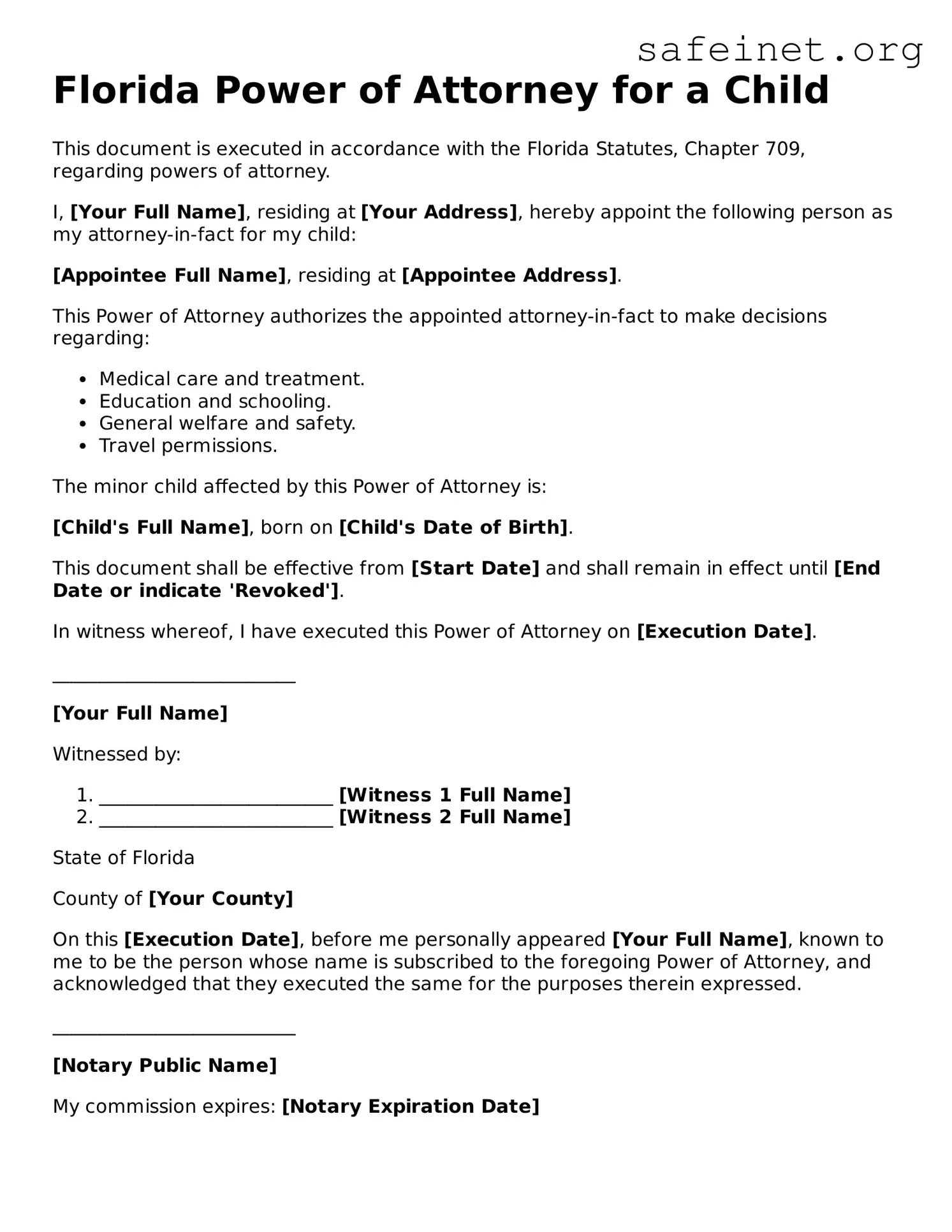Florida Power of Attorney for a Child
This document is executed in accordance with the Florida Statutes, Chapter 709, regarding powers of attorney.
I, [Your Full Name], residing at [Your Address], hereby appoint the following person as my attorney-in-fact for my child:
[Appointee Full Name], residing at [Appointee Address].
This Power of Attorney authorizes the appointed attorney-in-fact to make decisions regarding:
- Medical care and treatment.
- Education and schooling.
- General welfare and safety.
- Travel permissions.
The minor child affected by this Power of Attorney is:
[Child's Full Name], born on [Child's Date of Birth].
This document shall be effective from [Start Date] and shall remain in effect until [End Date or indicate 'Revoked'].
In witness whereof, I have executed this Power of Attorney on [Execution Date].
__________________________
[Your Full Name]
Witnessed by:
- _________________________ [Witness 1 Full Name]
- _________________________ [Witness 2 Full Name]
State of Florida
County of [Your County]
On this [Execution Date], before me personally appeared [Your Full Name], known to me to be the person whose name is subscribed to the foregoing Power of Attorney, and acknowledged that they executed the same for the purposes therein expressed.
__________________________
[Notary Public Name]
My commission expires: [Notary Expiration Date]
